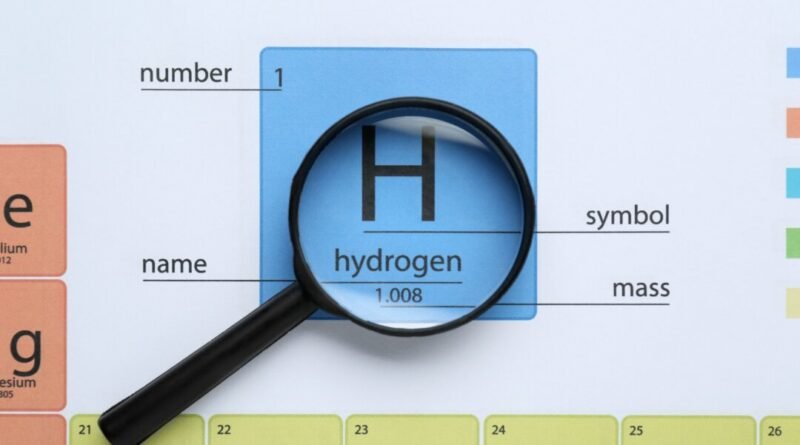Hydrogen’s Healing Power: Transitioning from Antioxidant to Anti-Inflammatory
Hydrogen is the most abundant element in the universe, and a growing body of research shows it also has numerous health benefits.
What Is Molecular Hydrogen?
Hydrogen, the simplest, lightest, and most abundant element in the universe, comes in various forms, such as atomic hydrogen, hydrogen ions (positive or negative), hydrogen in compounds (water, glucose, etc.), and as a diatomic gas known as molecular hydrogen—written as H₂.
Molecular Hydrogen in Neurodegenerative Diseases
Studies have shown that hydrogen can exert a protective effect against neurodegenerative diseases like Alzheimer’s and Parkinson’s disease. These effects are likely due to hydrogen’s ability to reduce inflammation and oxidative stress, which are known associations with neurodegenerative disorders.
Tyler W. LeBaron is the founder and executive director of the Molecular Hydrogen Institute, a science-based nonprofit. He has published extensively on the benefits of molecular hydrogen and works to promote its use through scientific research and public awareness.
Mr. LeBaron spoke to The Epoch Times, explaining hydrogen’s ability to exert beneficial effects in a wide range of diseases.
“Every disease has the underlying mechanisms of inflammation and oxidative stress, and hydrogen helps to attenuate and regulate both the inflammatory response and the antioxidant oxidative balance, or homeostasis.”
A study in newborns demonstrates hydrogen’s protective effect on the brain.
Other studies also demonstrate the beneficial effect molecular hydrogen has on the brain.
Hydrogen Health Benefits
In 2007, Japanese scientist Shigeo Ohta and his team published a landmark study in Nature Medicine, the findings of which would be the catalyst for hydrogen research in the coming years. The study found that molecular hydrogen could act as a selective antioxidant—neutralizing harmful reactive oxygen species (ROS) without adversely affecting beneficial ones. This meant that hydrogen could protect cells from damage and reduce inflammation without impairing beneficial ROS like hydrogen peroxide—needed to maintain cellular function and protect us from infections.
Mr. Ohta and his team’s findings suggested that hydrogen could combat diseases linked to inflammation and oxidative stress, such as cardiovascular diseases, neurodegenerative diseases, and chronic inflammatory conditions like rheumatoid arthritis, diabetes, and cancer.
Mr. Ohta is a professor in the Department of Biochemistry and Cell Biology at the Institute of Development and Aging Sciences, Graduate School of Medicine, Nippon Medical School in Tokyo, Japan. He is also one of the world’s leading researchers in molecular hydrogen.
He discussed the benefits of hydrogen with The Epoch Times.
“Hydrogen is really outstanding, and hydrogen is different from conventional or traditional drugs and foods because hydrogen does not show any adverse effects—no toxic effects. Also, hydrogen shows beneficial results for patients with serious diseases and healthy people.”
In their 2007 study, Mr. Ohta and his team stated that molecular hydrogen is a small molecule that diffuses easily and travels quickly across cell membranes and into tissues.
Subsequent studies have found that hydrogen has a wide range of beneficial biological effects.
According to the National Cancer Institute, autophagy is a cell’s natural recycling process. It breaks down and destroys old, damaged, or unneeded components and recycles them for use in essential cell functions, especially in times of stress or adversity.
Molecular Hydrogen: Methods of Administration
We can ingest hydrogen in several ways. The most common are inhaling hydrogen gas via a mask or nasal cannula, drinking hydrogen water, or soaking in a hydrogen bath. All of these methods use hydrogen gas—or molecular hydrogen.
Mr. LeBaron explained that there are many misconceptions and misunderstandings about molecular hydrogen, how it’s consumed, and how it functions in the body.
“You can inhale the gas or you can dissolve it into the water and drink it, so the water is simply the carrier for the dissolved hydrogen gas—just like carbonated water, for example. But once you make it, it is just the gas and doesn’t bind to the water molecules and doesn’t change the water structure—it’s just dissolved in the water,” he said.
Mr. Ohta explained the benefits of drinking hydrogen water simply—because molecular hydrogen is so tiny, it can enter cells and penetrate the blood-brain barrier. After drinking it, hydrogen spreads throughout the body in about ten minutes. It stays in the body for one to two hours before being exhaled through the lungs—but its positive effects last an entire day—eliminating the need to drink it continually throughout the day.
Safety and Toxicity
One of the most impressive aspects of molecular hydrogen is its safety, as emphasized by both Mr. Ohta and Mr. LeBaron.
Mr. Ohta says that, based on the thousands of studies conducted worldwide, molecular hydrogen is very safe.
“As far as we know from publications, there are no reports of side effects, adverse effects, or toxic effects,” he said.
Mr. LeBaron highlights that the study of molecular hydrogen is still in its early stages. While numerous small studies have shown promising results, larger studies are needed to answer key questions about its true clinical efficacy, the best ways to administer it, and the ideal dose and frequency. Despite these uncertainties, he says he feels comfortable discussing it because of its potential benefits and high safety.
“Hydrogen may provide many benefits, and I think everybody should have access to it because it has no known negative side effects—it’s something very natural for the body. And that’s what makes me feel comfortable talking about it publicly … because we already know it’s safe. And that’s different than a pharmaceutical or some new drug,” he said.
Final Thoughts
Molecular hydrogen is an intriguing molecule with unique characteristics—it has been with us since the beginning of time, is natural to our bodies, is something a healthy gut microbiome produces (as a by-product of digestion), and is non-toxic.
Although hydrogen is not yet a mainstream medical treatment, it is being used medically in some countries, particularly Japan and other parts of Asia, where it has gained wider acceptance and government support.
Increasing public interest and promising research results are driving continued exploration into the benefits of molecular hydrogen. As awareness and funding grow, studies will expand, helping to answer remaining questions about hydrogen’s effects and determining its potential role in the future of medicine.
To learn more about molecular hydrogen, explore research, or get tips on what to look for when purchasing hydrogen products, visit the Molecular Hydrogen Institute’s website.
Mr. Ohta has a clear vision for the future, telling The Epoch Times what he wants to focus on in his hydrogen research going forward.
“My dream is to improve the patients with Alzheimer’s disease. No one has succeeded in improving patients with Alzheimer’s disease—so this is my dream.”





